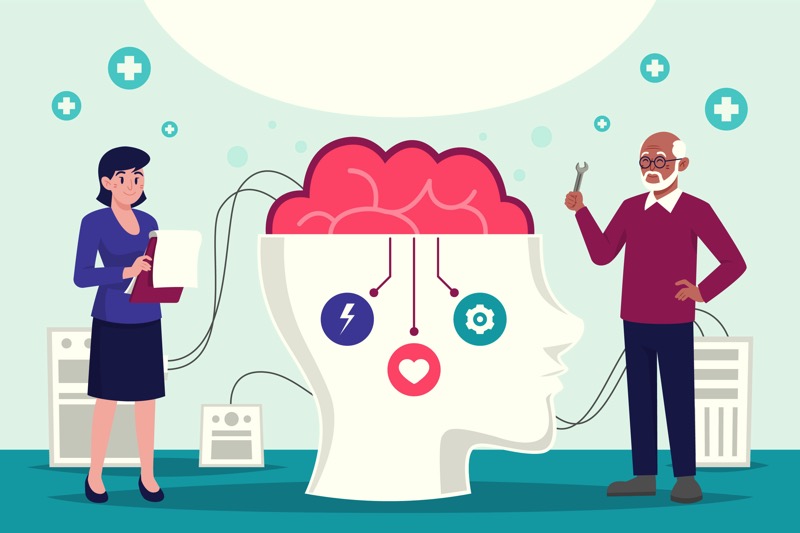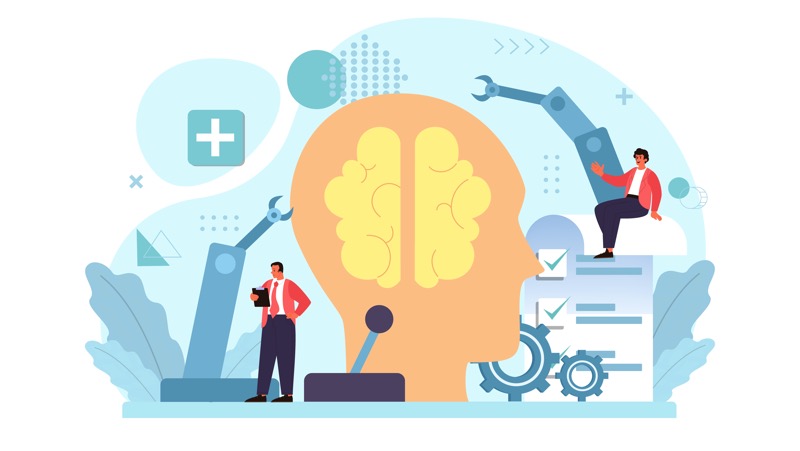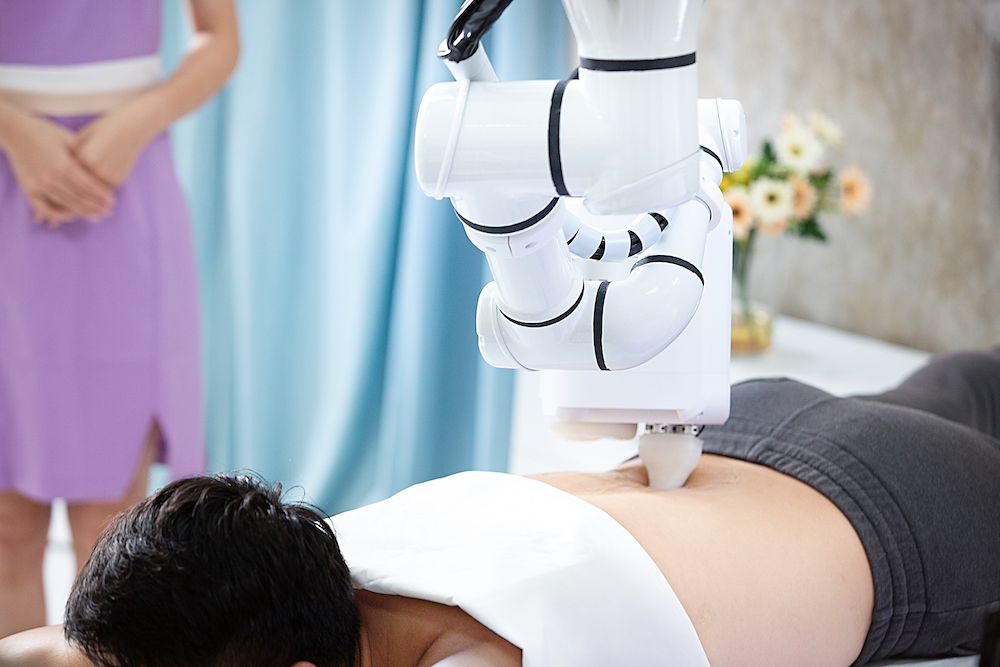The year is 2030. You now live in a world in which an algorithm, not a human, listens patiently to your every woe, helping you confront your deepest fears and anxieties. Sounds like something out of a sci-fi novel, doesn’t it? But this future is closer than you might think, as technology is evolving at breakneck speed. Artificial intelligence (AI) is already transforming the mental health landscape, bringing both promise and peril. So, let’s dive into this brave new world to discover whether machines can truly help us feel better, and how we can harness their power for good.
The Effectiveness of AI-Driven Cognitive Behavioral Therapy
Imagine tapping into the collective wisdom of thousands of therapists in a single session, without incurring a hefty bill. This is the transformative potential that AI-driven Cognitive Behavioral Therapy brings to mental health care.
With the ability to analyze vast amounts of data in mere seconds, AI has the potential to revolutionize the way we diagnose and treat mental health issues. But how exactly does it do this, and what real-world examples can we look to for guidance?
AI-driven Cognitive Behavioral Therapy boasts several notable benefits that could transform mental health care:
The AI therapist benefits from extensive data sourced from thousands of cases, providing a wider frame of reference than a human therapist. This comprehensive data allows AI to deliver personalized insights that evolve with each interaction.
Accessibility is another highlight of AI therapy. Available 24/7 without appointments, an AI therapist can provide immediate help to those struggling with mental health issues—an advantage over human therapists who are often bound by scheduling constraints.
AI therapy also excels in session frequency. Not limited by a packed schedule or numerous clients, AI can provide daily sessions if necessary, enabling more consistent care and quicker treatment progress.
AI therapy’s cost-effectiveness is undeniable. With traditional therapy sessions costing between USD 120-150 per hour in Singapore, AI therapy, being substantially cheaper, makes mental health care more affordable for many.
Lastly, AI therapy provides the comfort of anonymity. Many, especially younger individuals, may feel less judged and more comfortable opening up to an AI, fostering open and effective discussions about mental health.

Take Woebot, for instance. This friendly little chatbot is designed to offer cognitive behavioral therapy (CBT) through an engaging and interactive platform. By engaging with Woebot, users can learn valuable coping strategies and challenge negative thoughts – all without the need for a human therapist. The results? In a study published in the Journal of Medical Internet Research, researchers found that Woebot significantly reduced symptoms of depression in participants after just two weeks of use.
But AI is not limited to chatbots. Advanced algorithms can also help clinicians make more accurate diagnoses by analyzing medical records, genetic data, and even facial expressions. In some cases, AI has even outperformed experienced professionals in identifying signs of mental health issues. For example, a study published in Nature Biotechnology demonstrated that an AI algorithm was able to predict the onset of psychosis in high-risk youth with a greater level of accuracy than human clinicians.
In another instance, researchers at the University of Vermont utilized AI algorithms to analyze the language used by individuals on social media platforms and were able to detect signs of depression with an accuracy of 70%.
AI tools and chatbots can enable mental health care providers to offer more personalized and effective treatments to their patients. These innovative solutions can serve as an invaluable resource for professionals, streamlining the process of diagnosing, monitoring, and treating mental health conditions. By providing tailored and accessible support, AI has the potential to break down barriers and empower individuals to take control of their mental health journey.
However, this brave new world of AI-assisted mental health care is not without its pitfalls. As we continue to explore and embrace the power of technology, it is crucial that we remain mindful of the potential dangers that may arise if AI is left unchecked.
The Dangers of Unchecked AI

While AI’s capabilities in mental health care are undeniably promising, there are legitimate concerns surrounding the ethical, social, and psychological implications of relying too heavily on these tools. As machines become more deeply integrated into our lives, we must remain vigilant in addressing the potential risks associated with their use.
One such danger lies in the potential for AI systems to perpetuate and amplify existing biases, whether they stem from the data used to train the algorithms or from the unconscious prejudices of their creators. The consequences of such biases can be particularly harmful in mental health care, where cultural sensitivity and individualized understanding are critical to effective treatment.
Additionally, the rise of AI-driven mental health tools raises concerns about privacy and data security. As these tools collect and analyze increasingly intimate and sensitive information, the potential for data breaches or misuse of personal information becomes an ever-looming threat. Ensuring the protection of individuals’ privacy and establishing trust in these systems is crucial for the successful implementation of AI in mental health care.
Moreover, an overreliance on AI could lead to a decrease in the human touch that is so essential for building therapeutic relationships and fostering empathy. While AI has the potential to significantly enhance the mental healthcare landscape, it cannot replace the warmth, understanding, and emotional intelligence that human providers bring to the table.
A study in the Journal of Medical Internet Research found that patients who received blended care, a combination of face-to-face therapy and digital interventions, showed better clinical outcomes and higher satisfaction rates than those who received either treatment alone.
The pursuit of AI-assisted mental health care is a dance with both promise and uncertainty, as we strive to harmonize technology with the complex and ever-evolving symphony of the human mind.
We need only look to the 2016 Microsoft chatbot, Tay, to see the potential dangers of unchecked AI. In less than a day, Tay was transformed from a well-meaning conversationalist to a controversial figure spouting hate speech and offensive comments. When the machines we rely on for mental health support can be so easily manipulated, is it wise to place our trust in them?
Using AI as a Complement to Human Mental Health Care Providers
Navigating the intricate balance between promise and peril in AI-driven mental health care is like walking a tightrope between two towering skyscrapers. On one side, we have the potential for innovative, efficient, and accessible mental health care, while on the other, we face the risks of impersonal, culturally insensitive, and potentially harmful experiences. To cross this precarious divide, we must treat AI as the balancing pole, providing stability and support while still relying on skilled human practitioners as the tightrope walkers themselves. In this delicate situation, we strive for harmony between technology and human expertise, aiming to create a holistic mental health care approach that reaches new heights of effectiveness, empathy, and understanding.
A study published in The Lancet Digital Health found that the performance of AI in diagnosing diseases based on medical imaging was on par with human experts. However, the study also emphasizes that AI should be seen as a tool to support and enhance human decision-making, rather than replacing it.
AI offers tremendous potential for improving mental health care, but it is not a magic wand. The road to true healing lies in striking a delicate balance between the power of technology and the warmth of human connection. By embracing AI’s capabilities while remaining vigilant against its limitations, we can ensure that the impact of AI on mental health is a positive one. After all, isn’t the goal of mental health care to help us all feel a little more human?
All opinions expressed in this piece are the writer’s own and do not represent the views of KrASIA. Questions, concerns, or fun facts can be sent to [email protected].

